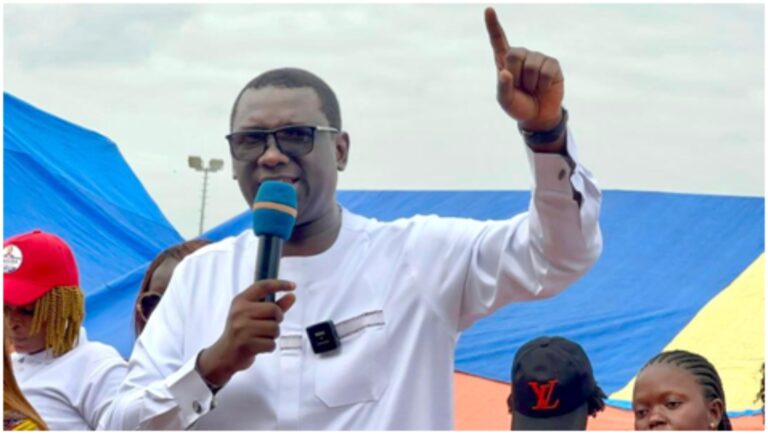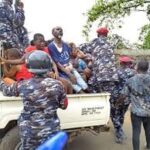In my first article, I wrote about distractions and smear campaigns that sought to derail the rising momentum of Dr. Ibrahim Bangura and how those efforts failed. In the second, I focused on his quiet, steady leadership, the kind that trades noise for nation-building. Now, after his extensive interview with Liberty TV Online, it is even clearer that this man’s rise is no accident. It is the product of preparation, conviction, and a deep sense of direction.
His story is not a mere political campaign. It is a lifetime of service converging at a crucial moment in Sierra Leone’s democratic evolution. It is not about making a name but about building a nation, not about ambition for power but a commitment to people. That makes all the difference.
Dr. Bangura’s journey begins where many Sierra Leonean stories do, in Freetown, among family, friends, and a deeply rooted political tradition. Born into the All People’s Congress (APC), his connection to the party is not transactional. It is generational. His father’s devotion to the APC was more than political loyalty; it was personal history. Dr. Bangura often recalls that his parents met just outside the APC party office, a symbolic origin that bound him to the party long before he understood what politics meant. These early ties weren’t about politics as strategy, but politics as family, politics as belonging, politics as legacy.
What’s striking is not just his origin, but what he did with it. From leading APC student movements at Fourah Bay College (FBC) to launching youth initiatives like The Rising Sun, Dr. Bangura has worked quietly for decades. While others campaigned for titles, he organised dialogues, mentored young minds, and linked education to political awareness. He hasn’t been absent from Sierra Leone’s political landscape. He has been effective, often out of the spotlight, always consistent. He has shown that one does not need noise to be noticed; one needs value to be remembered.
This leadership style does not shout to be heard, but rather one that listens to understand. The same discipline drove him to volunteer a decade teaching at FBC, not for a salary but for a calling. It also led him to withdraw from pursuing the APC Secretary-General role in 2018 when party mediation was urgently needed. At a time when ambition would have been natural, he chose peace over position. He facilitated a two-year peace process between the APC leadership and the National Reformation Movement (NRM), resulting in the party’s most democratic constitution to date. Though some have tried to label him as NRM, the facts show he was invited as a peace expert by the APC. He was a bridge, not a wedge.
This is what sets him apart. While others seek power to influence, he seeks influence to heal. His campaign slogan, Heal. Unite. Build., reflects a life devoted to reconciliation and transformation. With peacebuilding work spanning over 40 countries, he brings a global lens to Sierra Leone’s local challenges. He understands Sierra Leone’s problems as real struggles—erosion of institutional trust, generational divides, and broken national unity. He advocates for leadership that goes beyond blame and focuses on inclusive progress. His experience in transitional justice has taught him that people need to feel seen and heard for real change to happen. That’s why he pushes for leadership that restores trust, empowers youth and women, and sees politics as service.
Dr. Bangura criticises performative leadership, which confuses presence with intention. He wants to restore integrity through reforms that emphasise inclusion and merit over favouritism. In his words, “You cannot build a nation with slogans. You build it with systems, discipline, and shared ownership.” He insists politics should be demystified and depersonalised. “It’s not about me,” he said. “It’s about the idea of a Sierra Leone that works for every child, every worker, every citizen.” He believes the APC must lead by example—not just in language but in culture. That is why he remains committed to party unity even while running for leadership. He does not insult opponents. He believes the process matters as much as the result. Leadership, to him, is not conquest. It is stewardship.
There is still much more to be said about the man, the vision, and the broader story behind his global experience, academic foundation, and enduring party loyalty. In a follow-up piece later this week, I will explore the other side of Dr. Bangura’s journey—one that takes us beyond the headlines and into the heart of his legacy-building path.







Cities’ message to world leaders: Unlock direct climate finance for Africa’s urban future